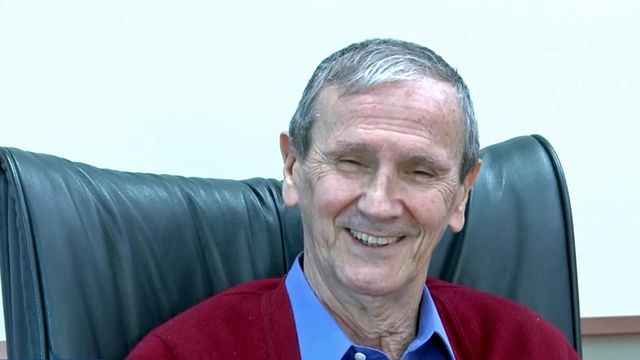Young, old, male, female: No one immune from breast cancer threat
The biggest message is that young and old, male and female, no one should consider themselves at zero risk for breast cancer.
Posted — UpdatedThe many faces at the race are a reminder that breast cancer – while most common in women between the ages of 40 and 70 – can also impact those outside that norm.
Vanessa Pilkington Batts, 30, had no apparent genetic link to the disease, and hers was a fairly aggressive tumor.
"To sit back and realize that you're young and this is happening to you, was, it was different," she said.
At the other end of the age spectrum is 73-year-old Marvin Fineman. He knew breast cancer in men was rare, so he ignored the lump in his breast at first.
At the age of 87, Ernestine Whitaker had a slow-growing breast tumor removed, and it was not her first.
"So it was a recurrence," she said, "Two years, almost to the day."
The only other thing these three in common is that they live in North Carolina and their surgeon is Dr. Lisa Tolnitch of Duke's new breast care center in Raleigh.
Tolnitch says the causes of breast cancer are largely a mystery, according to statistics.
"About 9 to 10 percent are genetic; About 30 percent are environmental, and the rest are just bad luck," Tolnitch said.
Finding a cure involves finding commonalities.
Batts has undergone chemotherapy and breast cancer surgery.
"I'm about a month out of surgery and pathology came back totally clear," she said.
Once Fineman learned it was cancer, he didn't hesitate to have it removed. He'll soon begin chemotherapy to reduce the risk of recurrence.
Beyond a lumpectomy, Whitaker hasn't accepted any treatments.
"I've just given it to God," she said.
Tolnitch says for women Whitaker's age with a slow growing tumor, the side effects of treatment can be worse than the disease. Quality of life is the main consideration.
The biggest message is that young and old, male and female, no one should consider themselves at zero risk for breast cancer.
• Credits
Copyright 2024 by Capitol Broadcasting Company. All rights reserved. This material may not be published, broadcast, rewritten or redistributed.






